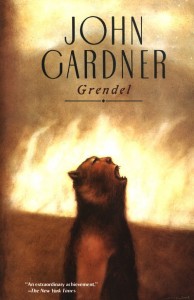Found among some papers of the late John Symonds (1914-2006) novelist, biographer (Aleister Crowley), playwright and writer of  children’s books – this letter. The sender’s name has been clipped off but he or she was obviously something of a power in the literary world. It displays two opposing views of the writer John Gardner. The second letter was written to propose Symonds for a literary position and talks of Gardner in glowing terms, the first letter (to Symonds) declares that he is ‘…one of the worst novelists in the world.’ This is the world of Martin Amis’s The Information, his great novel of literary rivalry.
children’s books – this letter. The sender’s name has been clipped off but he or she was obviously something of a power in the literary world. It displays two opposing views of the writer John Gardner. The second letter was written to propose Symonds for a literary position and talks of Gardner in glowing terms, the first letter (to Symonds) declares that he is ‘…one of the worst novelists in the world.’ This is the world of Martin Amis’s The Information, his great novel of literary rivalry.
Dear John, … You must excuse me for coupling your name with John Gardner’s in the way I do: it was but for policy and diplomacy. In my opinion John Gardner was one of the worst novelists in the world. But he was also just about the most famous American novelist of the past 20 years, in terms of the publicity he got and the huge sums of money he made and the general ballyhoo that went with his name. And the fact that I knew him gives a certain credence to my suggestion that you are another of the same. You and I needn’t tell them that we know you aren’t, praise be! I also enclose a little essay which might interest you, which isn’t to say you have to model yourself on me. But if you get the job let me know and I will give you a few hints which you can regard or disregard as you think fit. Tra la! Dear Sir, .I understand that my friend John Symonds is making an application to succeed John Gardner as resident novelist …May I say a few words in support of his application? As novelists, Gardner and Symonds had something in common: both brought a new perception to the writing of novels; they were (and Symonds still is) in the old sense, Makers. No American novelist has written novels quite in the way John Gardner did; no English novelist, in the way Symonds does. I am sure you will find this to be so when you look at his work when considering his application. Such novels as ‘Prophecy and the Parasites’, ‘The Shaven Head’, and ‘The Guardian of the Threshold’ are unique in English – and each is equally distinct when contrasted with the others. By a coincidence, I knew John Gardner well …I watched his early success as a novelist with the pleasure of a friend. And I can tell you that John Symonds is man (in his own, different way) of the same stamp. He would bring to the task of teaching the novel the same qualities as John Gardner had – a fresh viewpoint, having no truck with mere convention for its own sake, a lifetime of experience in many kinds of literary activities, wide practical experience in journalism and publishing, enthusiasm, insight, and a deep dedication to the art of writing. Indeed, I can think of no more fitting successor to John Gardner…You may already know some of John Symonds’s work – his important study of the Shakers, ‘Thomas Brown and The Angels’, for example, and his life of Madame Blavatsky. There is also his definitive biography of Aleister Crowley. Symonds began to publish novels in 1946, and has now published fourteen. You may also have seen the first two volumes of this ‘Collected Plays’, a publication still in progress. I hope these remarks may be helpful, and please call upon me if I can assist you further.

The book you show is by the wrong John Gardner: the American one is probably best-known for Grendel – Beowolf from Grendel’s view – which I hink is good – or short, at least – and various very large novels. I notice that Symonds’ correspondent never actually praises Gardner’s novels.
You are not wrong Roger and I will change the image, apposite though it is. He never actually praises JG in the second letter but there is quite a measure of approval surely? N
Admiration, perhaps, though not as a novelist – after all, Gardner wrote a biography of Chaucer, books of criticism and an epic poem too. After all, the qualities he ascribes to Gardner – “a fresh viewpoint, having no truck with mere convention for its own sake, a lifetime of experience in many kinds of literary activities, wide practical experience in journalism and publishing, enthusiasm, insight, and a deep dedication to the art of writing” – suggest someone who is desperately trying to avoid answering the question “But is he any good?” This needn’t destroy the author’s claim to friendship: James Agate wrote of Roger Fry, who I adore as a man but detest as a movement.”
Anyway, I noticed a biography of Gardner in one of your rival shops the other day, so I’ll have a browse and report back.
Five covers by the wrong John Gardner instead of one isn’t an improvement in accuracy!
The cover of the Picador Grendel is here: https://www.google.co.uk/search?q=john+gardner+grendel&source=lnms&tbm=isch&sa=X&ved=0ahUKEwje5b3iqYrMAhWGXBQKHXBSCyUQ_AUIBygB&biw=1138&bih=529#imgrc=qTY5fUleloJOlM%3A
Finally got it right, thanks Roger!